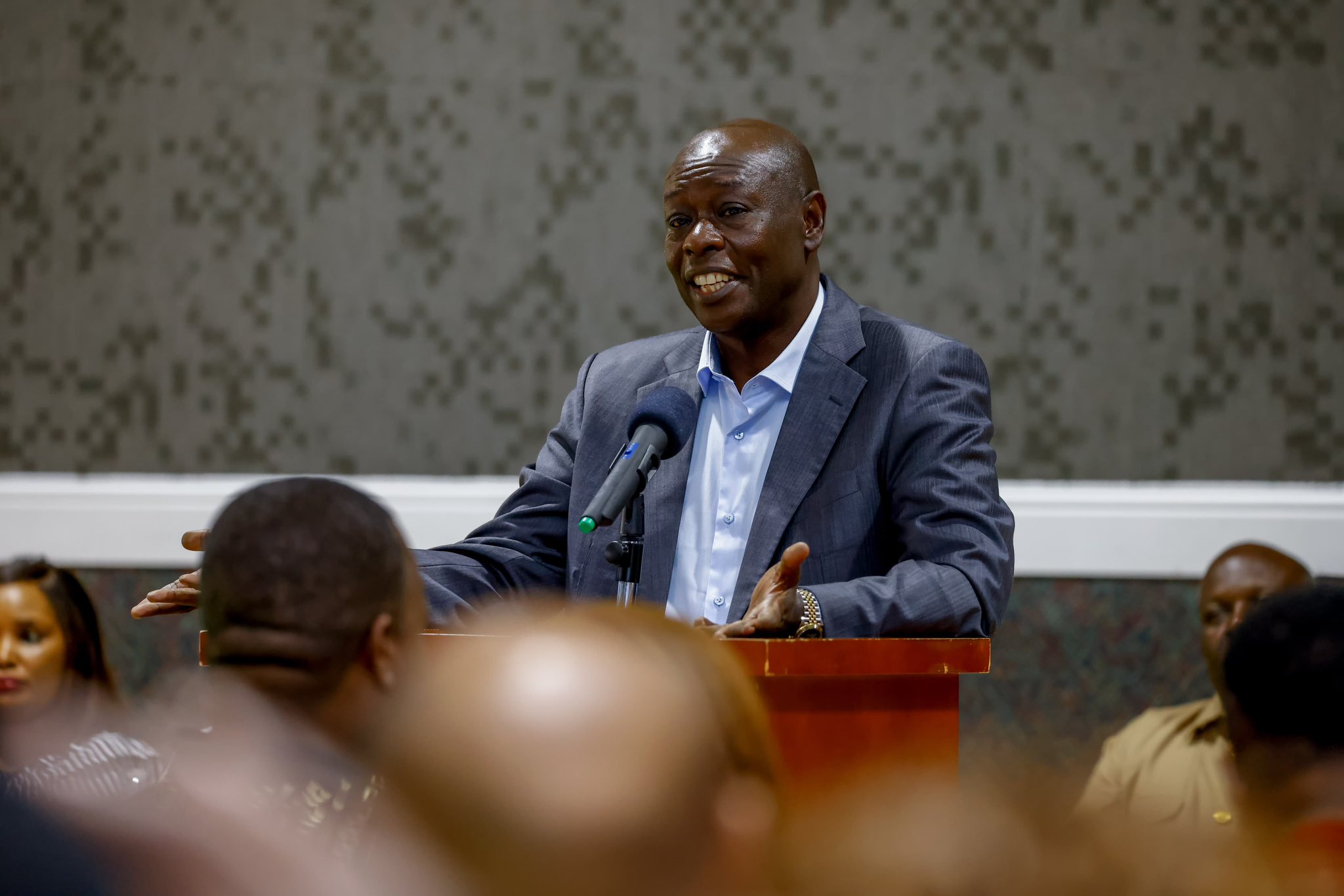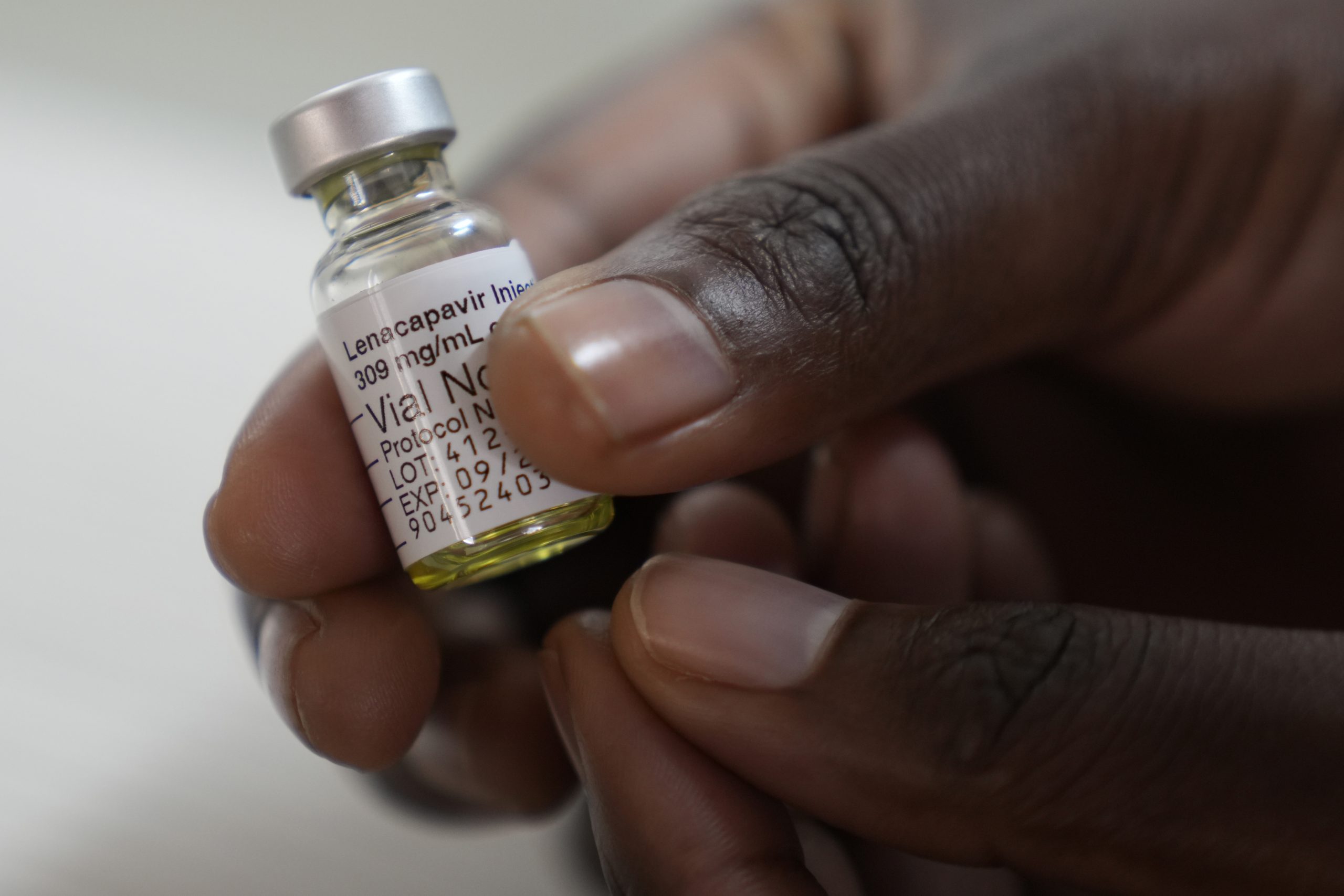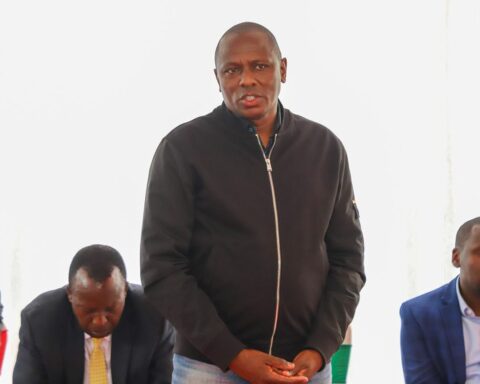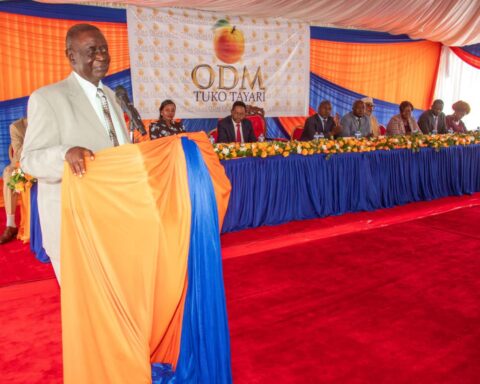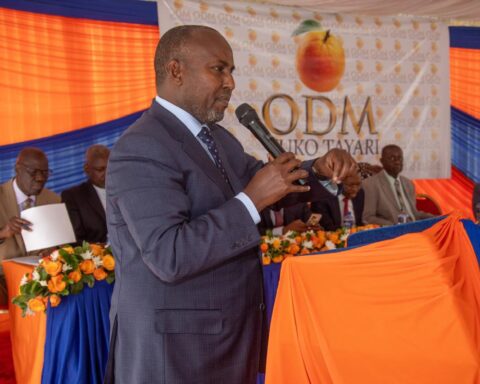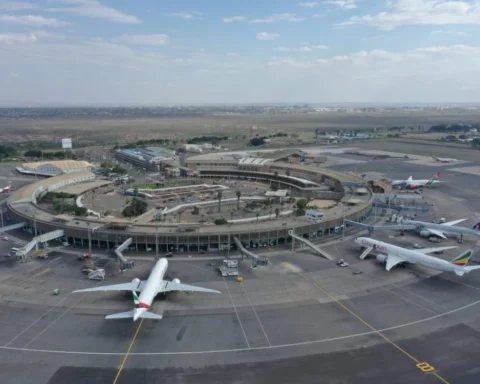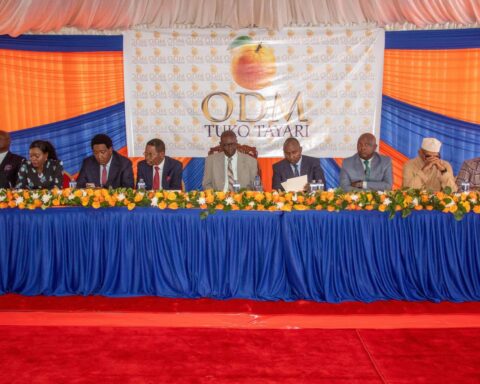Whatever your political affiliation is in Kenya you have to sympathize with Rigathi Gachagua. The man is a sad excuse for a human being leave alone a person who wants to lead our country.
The dude goes to America and in Seattle and as soon as he opens his mouth what oozes out is naked and stupid tribalism which has been his identity in Kenya but some may have hopped he would try to talk a little sense out there.
One thing for sure is that Gachagua went to meet Kikuyus in the US. Nobody has told him we don’t vote out here because the bill to allow Kenyans in Diaspora to vote has been totally screwed up. And secondly that out here for example in Canada where I live we have Kenyans from all tribes and there are no tribal affiliations out here because it will take you nowhere. But the goonman doesn’t know that. Good for him.
Talking about his imaginary chances of winning the presidency in Kenya and focusing on Raila, Gachagua had this to say.
“Even if they are together, we will beat them 70 plus 1. If Raila decides to run, Ruto will be number four in the elections. Either way, we are okay. “He is one-term,” he added, referring to President Ruto’s chances of re-election.
The ex-DP also took a swipe at the value Raila brings to any alliance, dismissing the notion that Raila’s support could bolster Ruto’s standing.
According to Gachagua, Raila no longer commands the political sway he once did, even in his traditional strongholds.
He claimed that many communities that previously supported Raila have since defected and are now backing his camp.
“The Kamba nation, the Kisiis, the Luhyas, and even the Maasai have left him”, Gachagua said.
He went further to claim that even the Luo nation, Raila’s home turf, is now divided, implying diminishing influence for the ODM leader.
His statements come amid increasing speculation over realignments ahead of the 2027 elections.
Samidoh performs for Gachagua, Karua in US
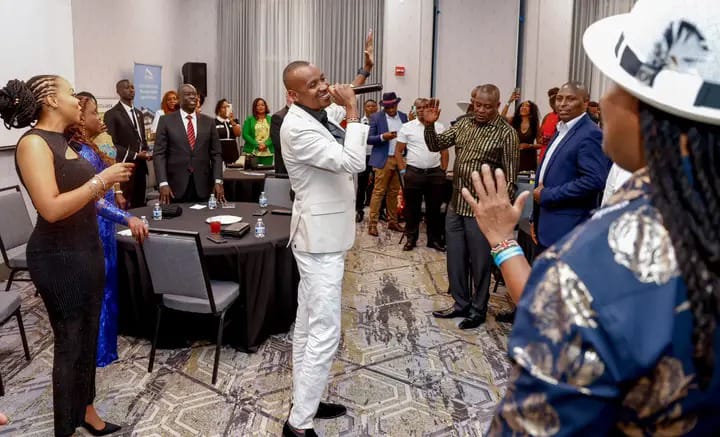
Speaking in the Kikuyu dialect, Samidoh welcomed the leaders and expressed appreciation for Gachagua’s presence.
“Your Excellency, we usually listen to what you say and get targeted. But if that’s the case, then it’s the Seattle Declaration,” he said in a light moment, sparking laughter before launching into a performance of the popular Mau Mau-era song Mwene Nyaga.
If Gachagua had the most rudimentary understanding of the issues dear to Kenyans in Diaspora particularly those in North America which is the US and Canada he would have sat down with a few people to give him some advice.
The first thing they would have told him is to keep out of tribal nonsense. The way Gachagua has started means only Kikuyus in the US will attend his meetings and some may be too embarrassed to go there. Here in Toronto Canada we have received many Kenyans leaders particularly when Kenya was on fire under the Moi regime
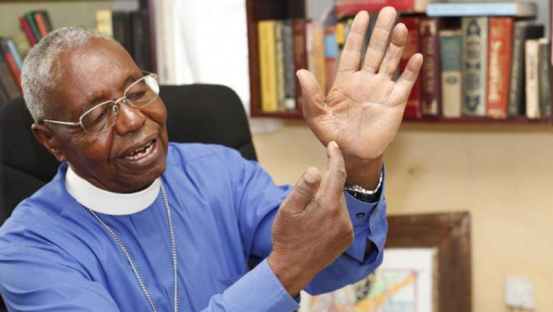
In 1997, Rev Njoya, a Presbyterian minister and political activist, was accosted and mercilessly battered by a plain clothes policeman in Nairobi during an anti-government protest

Rev. Timothy Njoya was here after he survived the brutal attack on him when he joined the mothers of political prisoners at Uhuru Park where the mothers were beaten to near death until they took of their clothes and told the Moi terror group attacking them that they were ready to die. NJoya and Wangari Mathai were there.
So when Njoya came to Toronto after that he met Kenyans not just those living in Toronto but some came from as far away as Vancouver City which is ten thousand Kilometres from Toronto. Those were great meetings and the focus was on what could be done for Kenya, their country and nobody uttered any tribal stuff.
Kivutha Kibwana also came to Toronto and we had very good discussions. Raila has been in Toronto a couple of times and usually our good friend Peter Karanja who was a manager in one of the biggest public libraries in Toronto would book big halls for him and it would be packed to the roof because everybody wanted to know where the country was headed to.
In most of those meetings it was questions and answers and one of the biggest challenges Kenyans would push Raila on was how to get dual citizenship for Kenyans outside the country. Eventually Kenyans in Diaspora are now allowed to be dual citizens since the 2010 constitution.
This was very important issue for Kenyans out here because if you took the citizenship of the country where you live and you own land in Kenya you become a foreigner and that could affect your ownership of your own land very badly. On the other hand being a citizen in the country where you live has a lot of advantages particularly when you reach retirement age.
Government to speed up dual citizenship applications for Kenyans abroad
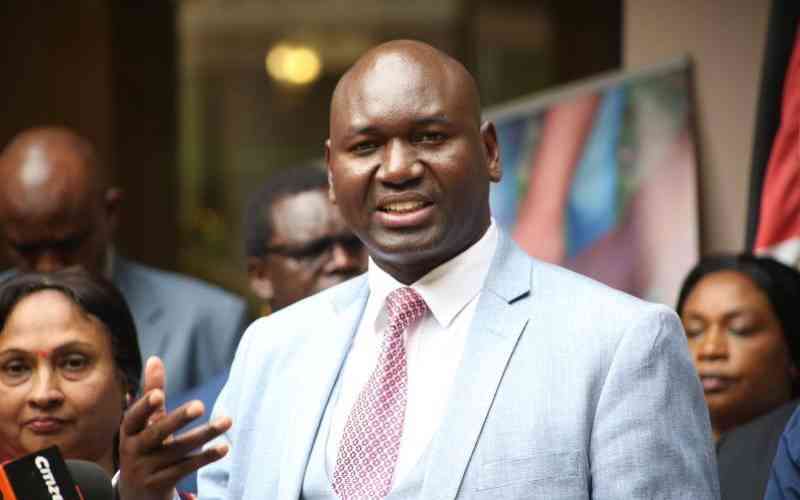
Immigration and Citizen Services PS Julius Bitok addressing the media in Nairobi.[Denis Kibuchi, Standard]
The government has pledged to expedite dual citizenship applications for Kenyans in the diaspora, who were required to renounce their citizenship before the promulgation of the 2010 Constitution.
Immigration Principal Secretary Julius Bitok said the new policy aims to encourage Kenyans who moved abroad and acquired other nationalities to invest more in their home country.
Here in Canada if you are not a citizen you are given the status of a Permanent Resident and you get your PR Card which means you enjoy all the rights that Canadian citizens have but you are only allowed to be out of Canada for six months at a time. Canada’s Permanent Resident (PR) system allows individuals to live, work, and study in Canada permanently. It’s a pathway to Canadian citizenship, and PRs have many of the same rights and responsibilities as citizens.
That means if you retire and go back home to live in that beautiful house you built there you must come to Canada every six months and then go back for another six months and back.
Now with dual citizenship you can retire in your country and get your retirement benefits paid from Canada which is a good piece of money down there and you can live at home for the rest of your life and only come back to visit your family still in Canada.
Who May Need Kenyan Dual Citizenship?

Note that there are instances when a Kenyan can acquire dual citizenship automatically. For example, per the new 2010 Kenya Constitution, a person born outside Kenya is deemed a citizen of Kenya by birth if they can prove that one or both their parents is or was a Kenyan citizen at the time of their birth.
The problem here is that for that young Kenyan born outside like my son, they have to go to Kenya and spend months applying for and hoping to get their Kenyan citizenship papers. The Kenya government should allow young Kenyans born out here to get the process done in the Kenya embassies abroad where the kids would go with their parents who have Kenyan IDs to prove their citizenship.
The other thing dual citizenship is good for is that it will encourage Kenyans in the diaspora to invest at home and have active businesses there because that is where they are going after working in Canada and building businesses at home.
The great thing about this is that Canadian citizens who are retired many of them live in Florida because of the nice weather there and they get their Canadian Pension Plan (CPP) payment every month. Same now applies to Kenyans with dual citizenship you can go home and live their for years if you want to and will get your CPP payments till the day you die. So this was a big deal for us and now we have it. You can also get a job in Kenya and work there as a citizen of both Canada and Kenya.
That would be very good for the young ones out here. Many of them are highly educated because in Canada education is free and when you go to the university you get a loan to pay for it. Here in Ontario where I live it is called Ontario Students Assistance Plan (OSAP) and every Canadian citizen is entitled to get it after High School, whichever education field they choose. These kids are graduating in every field and some of them may choose to work back at home to get to know their country better.
Those are the kind of things we used to talk to politicians who were already in parliament and we asked them to bring those issues to the National Assembly and they did and got it for us through the 2010 constitution. Dual citizenship was not about which tribe you are, it was for all Kenyans.
Meanwhile Gachagua is telling Kenyans that in Seattle they had a festival which drew hundreds of attendees eager to reconnect with their cultural roots through music, food, and traditional performances.
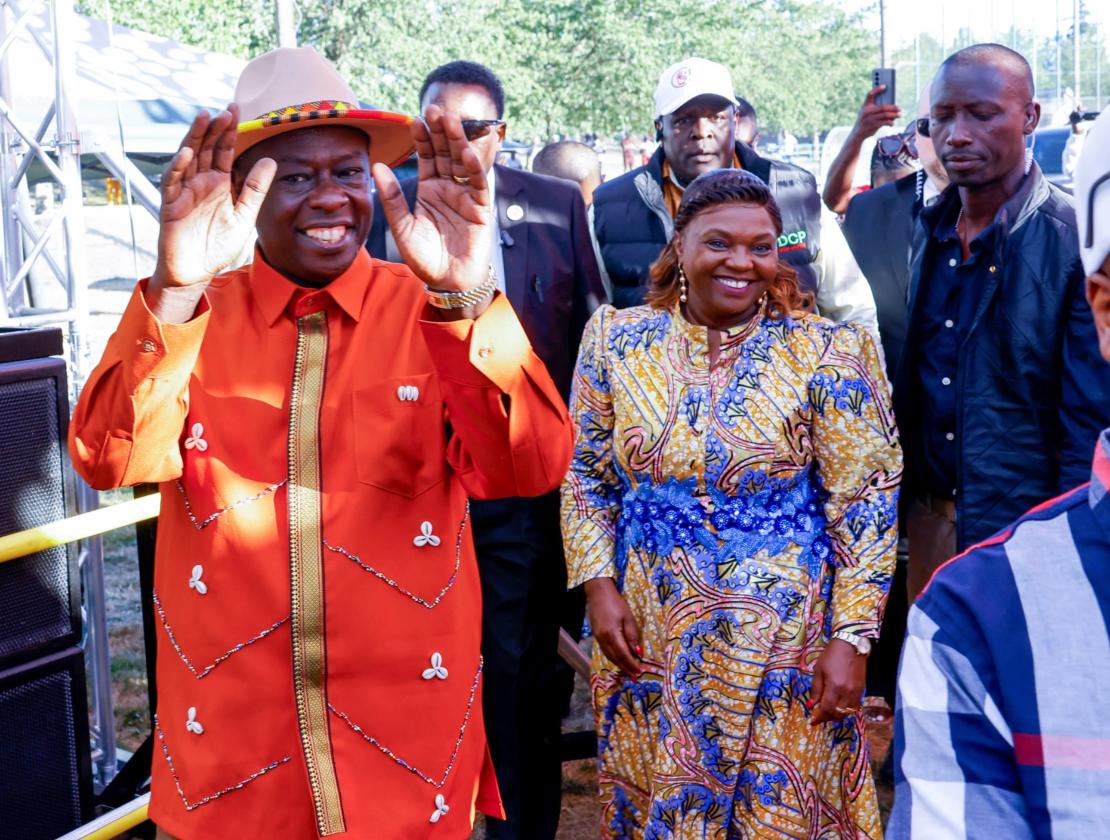
Today if Gachagua was a normal politician or human being for that matter, he would be talking about voting rights and arrangements for Kenyans in the US and other countries on how to implement their right to vote for their leaders in Kenya. Instead he is dancing to the music he left at his home in Wamunyoro.
He could have moved away from his tribalism and talk to Kenyans about what can be done to give Kenyans outside the country which is estimated to be 3 million today, some ideas on how he would help to build the infrastructure to assist Kenyans out here vote their M.Ps at home and for the president of their choice.
Screaming “Wantam” slogans to Kenyans in the US who cannot vote is a waste of time. Help them fix how to vote as provided by Kenyan laws then you can do your wantam workout.
Yes, the law is now in place to allow Kenyans in Diaspora to vote, but it is a useless law out here because there are no mechanisms to make that happen. Nobody out here is voting because first of all many of them do not have voting cards. A good number of Kenyans out here are part of the Gen Z group because they were born in the countries where their parents live. They have no Kenyan ID and no voting cards.
If there was any serious attempts to help Kenyans out here streamline how they vote by working a system for them to vote while living in the US and other countries Gachagua would have very lively audiences and would not be reduced to listening to Kikuyu songs.
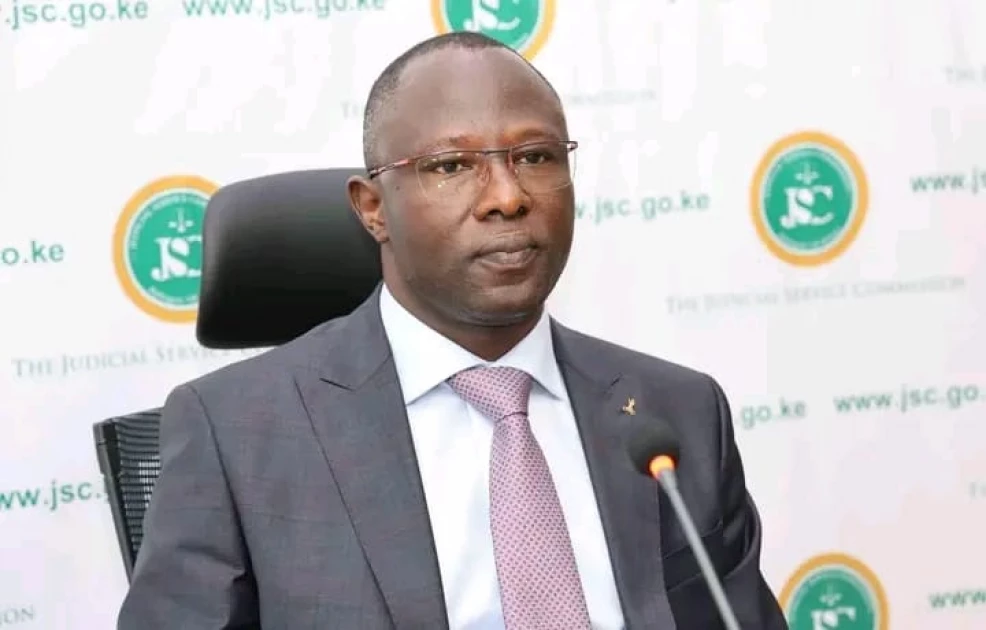
Erastus Edung Ethekon during the vetting for the IEBC Chairperson seat
The way to work those voting chances would start with the IEBC having a few commissioners outside Kenya starting with a few countries like the USA, Canada and England for example as well as one in the Nordic countries like Norway and in Sweden as well as others.
This is an issue which should be taken directly to the new IEBC in Kenya which has now been sworn in to get to work, Kenyans out are going to reach out to them from the many Kenyan organizations out here that exist today. The IEBC must develop and implement the Kenyan law that allows Kenyans in diaspora to vote. That is part of their job and they need to work with the government to get the system working instead of just announcements allowing us to vote with no mechanism to do so.
Those IEBC commissioners abroad would then work with Kenyan ambassadors in those countries to set up voting centres in a few cities at a time. Her in Canada they can do that in the city of Toronto and in Vancouver both of which have significant Kenyans living there. And Kenyans can also come from other cities to vote at the voting centres. The IEBC commissioners would then set voting centres and hire Kenyans out here to work as voting officers and than can work very well. Those are the things Kenyans out here need to discuss with political leaders who come out here to meet them.
It would be very dangerous to allow ambassadors and their staff to register voters and run the voting process because the ambassador can just give all votes to the president who gave them the job and that is why we need direct IEBC involvement if Diaspora voting is to be a serious process.
The other big issue is for Kenyans born outside the country many of whom are adults is how to get their Kenyan IDs and voting cards through the embassies out here. I can get my ID out here through the embassy if I lost the one I have. My son who was born here and is a Canadian citizen by birth cannot even get his dual citizenship done through the embassy. He has to go to Kenya and try to get it there which is impossible for them because the process is crazy and takes months. The young man cannot get that amount of time from his work place because in Canada the longest vacation from your employer is eight weeks per year.
Now me and and my son when we go to Kenya we always have interesting process at JKIA because at the airport on arrival, me I go on the line for Kenyans. He goes on the line for foreigners even when he was a young kid..
One time the Kenyan officer show his name is Adongo on his Canadian Passport and asked him if is he is a Kenyan and he told him yes, pointing at me on the other line. The guy took his passport to the Kenyan side and told them that the young man is a Kenyan.
We need to work out a system for young Kenyans out here to have their dual citizenship and ID cards otherwise when we die those kids are not coming down there but if they are Kenyan citizens a well as Canadians for example they would invest there and call it home and make friends. As of now Kenyans living out here know as soon as they are dead their young ones born here will have no links to their families back home.
These are the issues someone like Gachagua who wants to be a leader instead of a Kikuyu President should be talking about with Kenyans and hundreds of them would come to his meetings. Now as the case with him he is going to meet Kikuyus who are interested in talking with him and he intends to do that for two months. He is going to exhaust those Kikiyus. Out here where we live nobody is identified by tribe. Kenyans out here you go to any office and you tell them you are a Kenyan citizen nobody asks you about your tribe.
The other big issue for Kenyans out here and probably the biggest issue is how to build an efficient mechanism to allow Kenyans out here to invest in their country something all of them are desperate to do once they get good jobs and they earn some money
Kenya is overhauling its national healthcare scheme after 58 years – what would make the transition less painful?
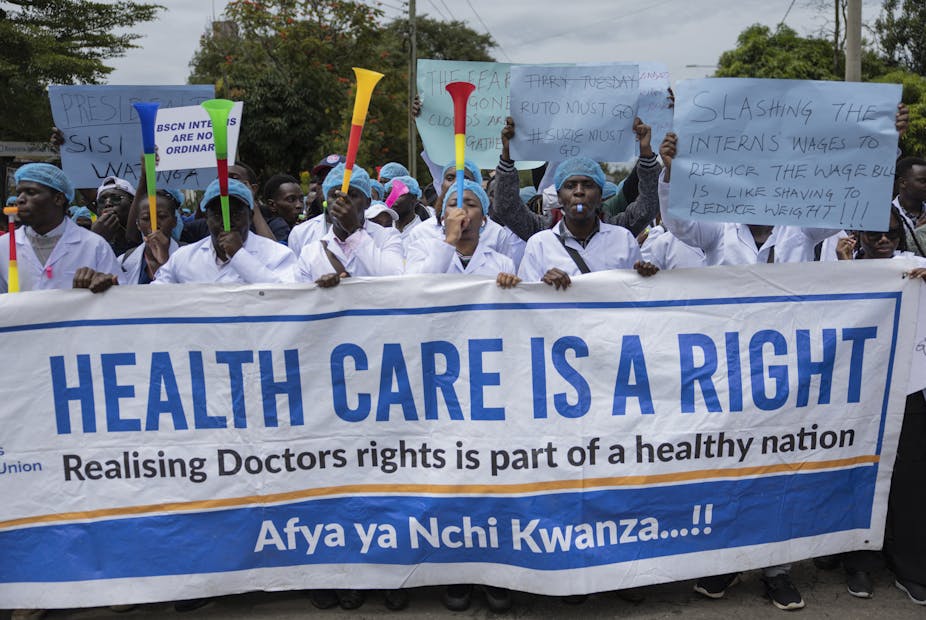
Kenyan doctors demonstrate outside the health ministry to demand better conditions in April 2024.
People talk about the remittances which Kenyans send home which by definition is a non-commercial transfer of money by a foreign worker, a member of a diaspora community, or a citizen with familial ties abroad, for household income in their home country or homeland.
The key word there is non-commercial which means that it is the little part of money Kenyans out here earn and send a portion of it to family members for basic needs. We send money every time we get paid mainly to help family members with health needs which must be the biggest amount people send back.

Education also takes a big portion of our remittances. Kenyans out here also work with international funding agencies that build and fund education facilities in many parts of Africa. If you don’t present the needs for your country others will do it for their countries.
In terms of remittances for education for my family I know every time I get paid I already have kids and their parents in my list who I have promised to assist, and the first thing I do before I spend the money on my needs here is to send that money so I don’t forget and they lose a whole year of schooling.
It is very tight down there because the students have to pay tuition fees at the beginning of the term which is three times per year. Sometimes I talk to the school heads and give them my schedule to pay the school fees and it works for me and the kids if the school administration knows the tuition money will be paid.
Just a few days when the new term opened me and my sister paid Sh.20, 000.00 and then the kid goes to the college where she is in Thika and the college head tells her that she has another Sh.21,000 to pay for a whole bunch of national exams she has to take. You don’t have that money sitting on your desk so I have to talk to the Finance Office there and make arrangements to pay and that settles it.
Kenya tops East Africa in diaspora remittances with Sh537.6 billion in 2024
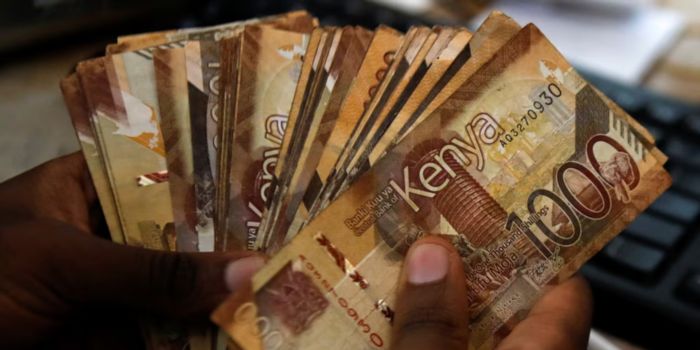
Thank God for MPESA which works directly with banks here in Canada, I just pick the phone send money to their MPESA account at home which is on their cell phone and it is sent from my bank account and money get there in a few minutes. Also if you need to send more than you have you send the little you have and do the rest a week later. It works like magic.
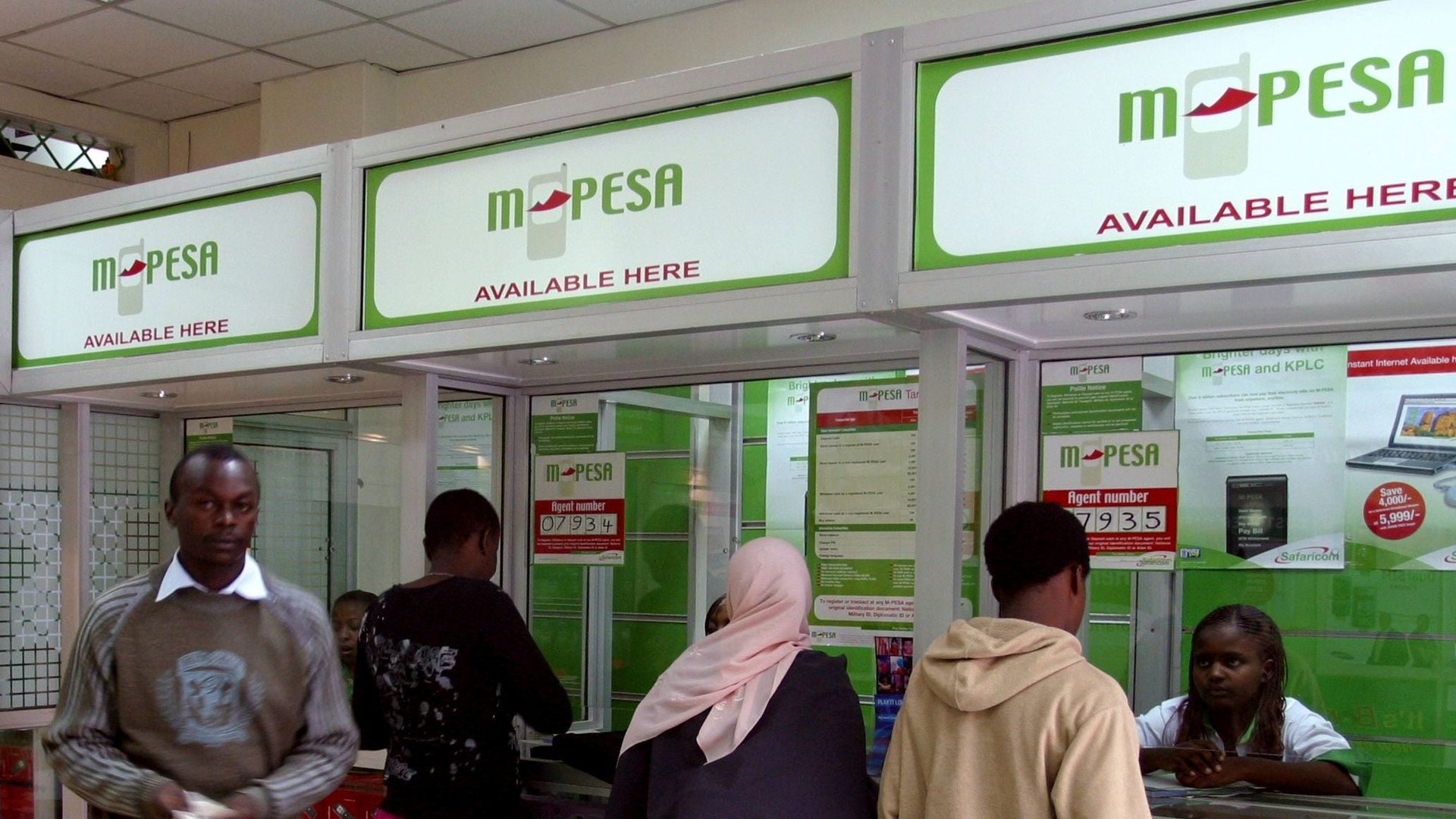
Safaricom is partnering with PayPal to boost its e-commerce capabilities in Kenya, solidifying its footing not just as a mobile phone business but as a global company
Latest big numbers from Diaspora remittances are great.
Diaspora inflows stabilize shilling as Kakuzi bullish
July 14, 2025
The steady growth in remittance inflows remains a key source of foreign exchange earnings.
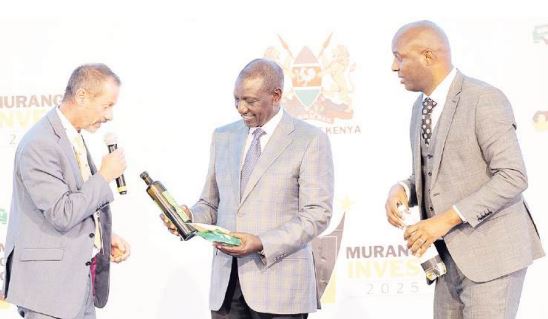
The foreign exchange reserves held by the Central Bank of Kenya hit a new high of $11.2 billion (Sh1.45 trillion) in the week ended July 11 on rising diaspora remittances, providing a solid ground for the local currency’s stability.
Remittance inflows to Kenya totaled $423 million in June 2025 from $372 million in June 2024, an increase of 13.8 per cent. The 12-month cumulative inflows to June 2025 increased by 12.1 per cent to $5.08 billion compared to $4.5 billion in a similar period in 2024.
I have kids in college down there at home with some in institutions like Kenya Medical Training College (KMTC) and we have to push them through to become registered nurses. The ones at the university you have to assist them in paying rent in the small places they get to live.
The only business I do there is to build houses in my family property in Bondo Town which is a booming place and we call it Bondo City and me now I am busy building what my friends call Adongo City just outside the town centre.
The remittances we send home would be peanuts if Kenyans living out here as residents in those countries can find a way to invest in Kenya. Let me give an example from myself. One time a few years ago when I was home my sisters told me they need a tractor which can do ploughing but also with a trailer and a big water tank. That is a lot of money. But my sisters told me they are building rental houses and the tractor would help them cut costs in a big way.
With the tractor they will go collect sand from the lake shore which is not far and they will bring a lot of sand to make bricks and use it in so many other things so they will only need to buy cement to make bricks and they needs sand for so many things. The other thing they told me the tractor with a trailer is good for is that they use it to collects stones which are plenty in our area and if you have those ones you are going to build same real good house.
When I came back to Canada my friends told me I need to go to the farming areas which is all over Canada and I will get used tractors which is still almost new. So we went there with my buddies and we identified a few. The price was high but it was a good deal. Now I go to the container place and it was $ 5,000.00 per a container. What we do out here is you get other people with things to send home so three of you can share the same container and that really helps.
Every thing fell a part when the Kenya Embassy told me the amount of excise duty I will have to pay when the tractor is delivered at the port in Mombasa. To make things worse the excise duty can be based on the governments officer’s evaluation of your tractor and not necessarily on what you paid because sometimes they think you are giving them fake receipts. The excise duty would make it look like I am buying another tractor. So I gave up and ended up buying a tractor in Nakuru and they are in millions of shillings.
Kenyans out here would invest 100 times more in Kenya if they were offered a deal to have industrial products being taken to Kenya from Kenyans out here without paying excise taxes. The government can give Kenyans out here who are residents in the countries they live one time excise duty free items and that will be allowed once per a resident out here. So if you want to start a bakery in Kenya which is my dream then you go buy all the equipment you need to build one and transfer them to Kenya without taxes.
Two things here. Why do I say that it should only be allowed only once. That is because we are Kenyans and this could very well lead to a situation where people in the country ask us to buy industrial equipment and we claim the equipment is for our investment when we are selling them at home.
That is not money laundering but it is equipment laundering. So you go to the embassy and provide your documents to show that you are a resident in Canada and not a student or visitor, you are signed in for that one time tax free investment and they have your record and you cannot do it again. If that is provided in our country then millions of Kenyans in diaspora will invest at home in trillions of shillings in a very short time.
Why Kenyans in Diaspora are Sending Home More Money Than Before

The government is likely to receive around Ksh631 billion in diaspora remittance from Kenyans abroad in 2024.
Prime Cabinet Secretary and CS for Foreign and Diaspora Affairs Musalia Mudavadi said the remittance are likely to increase by $0.6 billion (Ksh109 billion) from the $4.1 billion (Ksh522 billion) recorded in 2023.
“Remittances from the Diaspora are projected to increase to $4.9 billion (Ksh631 billion) for 2024, an increase from $4.1 billion from the last year,” Mudavadi said
Let’s try it and I am hoping the next president of Kenya and relevant his CS would come and sit down with us to work that out. The reality here is that putting an investment out in Canada or US is very expensive for us because you can’t get enough loan on your pay to finance it. But people out here can get more than enough loans based on their pay check to do very good investments for them and the country. Let Kenya figure out how to make this happen.
In most cases Kenyans when you get a good job is that they like to buy houses just like other Canadians. So you get a job and take a loan even up to $ 1 million which is Sh. 100 million. Imagine what kind of investment you can do in Kenya and also pay the loan very fast because you would making serious money with that kind of investment. Let us give the incentives for Kenyans out here most of whom have good middle class jobs to get loans out here and invest the money in Kenya.
In June 2025, the Greater Toronto Area (GTA) saw a year-over-year decrease in the average home price, with a benchmark price of $995,100, reflecting a 5.5% decline. The average sold price was $1,101,691, a 5.2% decrease compared to the previous year.
To buy a house here you get a loan and pay mortgage for the next 20 plus years and by the time you finish paying for it you are ready to retire and you have a home in Canada which is okay but we could do a lot better if opportunities and incentives are given to Kenyans out here to attract investment at home and we spend that money for 20 years investing in Kenya.
One big result if Kenya develops the genius of providing incentives to allow Kenyan living abroad to invest in their country it practically means that Kenya will allow people to use the banks abroad to invest at home. For now Kenya only allows foreign investment run by foreigners to invest in Kenya and the country raves for those investments. And by the way the interest rates borrowing from the banks in most countries out here is much cheaper than the rates in Kenya.
My dream investment would be to build a bakery from scratch and make it a first class place to provide bread to Kenyans in my home town. That can be done pretty quick if we are allowed to buy all the equipment needed and we are given excise free once to bring equipment home.
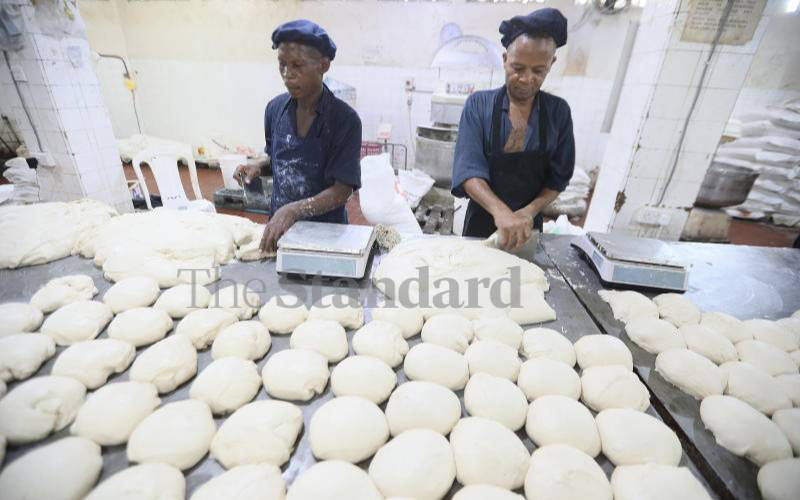
If our government provides incentives for Kenyans out here to invest their the country it will be foreign bank in investments in Kenya done by Kenyans and the results in the next ten years will be in trillions of shillings worth of investment flowing into the country.
I would have given that kind of advice to Gachagua for free but obviously he does not want to meet Kenyans like me and that is fine because it would probably been an advice he cannot understand.
Now let me say a few things about the political drama about to explode in Kenya. Gachagua said the other day that he intends to run for the presidency in Kenya and he would beat William Ruto to a pulp at the polls. He also said that his United Opposition group will pick a candidate by December this year.
Gachagua is going to run to be nominated and chances are very high that he will win that nomination. At the same time the same Gachagua is waiting for a court ruling on his impeachment and he is expecting the court to throw the impeachment out. The ruling on that case is a big deal for Gachagua. That court decision is likely to be made before the end of the year.
Sonko now heads to Supreme Court after IEBC refuses to clear him
June 07, 2022
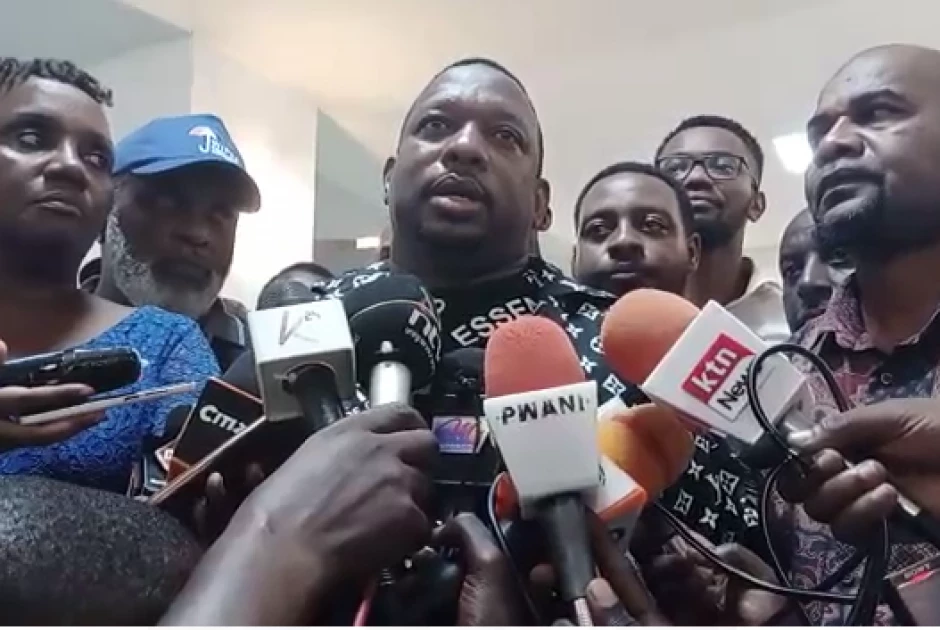
Mombasa gubernatorial aspirant Mike Sonko addresses the press after he was denied a clearance certificate by IEBC on June 7, 2022.
Former Nairobi Governor Mike Sonko now says he is headed to the Supreme Court to file an appeal against the Independent Electoral and Boundaries Commission (IEBC) following its decision to deny him clearance in the race for the Mombasa County top seat.
Whether the impeachment stands or not if nominated Gachagua will insist that he is going to run for the presidency and take the matter to the Court of Appeal which will do their hearing next year and most likely come to the same ruling as the lower court. Then Gachagua will still insist to run and will eventually face the nightmare Mike Sonko faced in 2022.
Mike Sonko refused to listen to anybody who told him that as an impeached governor he won’t be allowed to run for any office. Sonko bullied his way to the IEBC and with a few months to election day and the IEBC told Mike Sonko that he is barred from any public office due to the impeachment. Sonko being Sonko he just went home and now he is focused on giving financial help to needy Kenyans and is doing a very good job with that.
So Gachagua can be the United Opposition presidential candidate until about June 7, 2027 when he will present his papers to the IEBC and will be told he is barred from contesting for the seat because of the impeachment. By that time it will be too late for the opposition to have a new candidate and have any hope of winning the presidency.
After the IEBC tells Rigathi Gachagua that he is not qualified to run for the presidency because of his impeachment, we expect to hear his new slogans for Kenyans which would be as follows:

Gachagua: HARAMBEEEEEEEE
The Crowd: NOTAM
Gachagua: IMMMMMPEACHED
The Crowd: NOTAM
Gachagua: WAMUUUUUUUUUNYOROOOO
The Crowd: NOTAM
Gachagua: TAFUTAAA JOBIIIIII
The Crowd: NOTAM
Gachagua: NIEEEEENDE WAPIIII
The Crowd: NOTAM
Gachagua : SHAAAAURIIIII ZENUUUU
The Crowd: NOTAM NOTAM
This will go on for hours a day till the elections. Oh Dear.
If Gachagua wants to wait until he is barred from running as presidential candidate on the day he presents his papers to the IEBC that is his problem and he can cry to high heaven after that happens but nobody will listen to him except for his dear friends who will miss him a lot and will be crying all the way to the polls as Gachagua’s replacement.
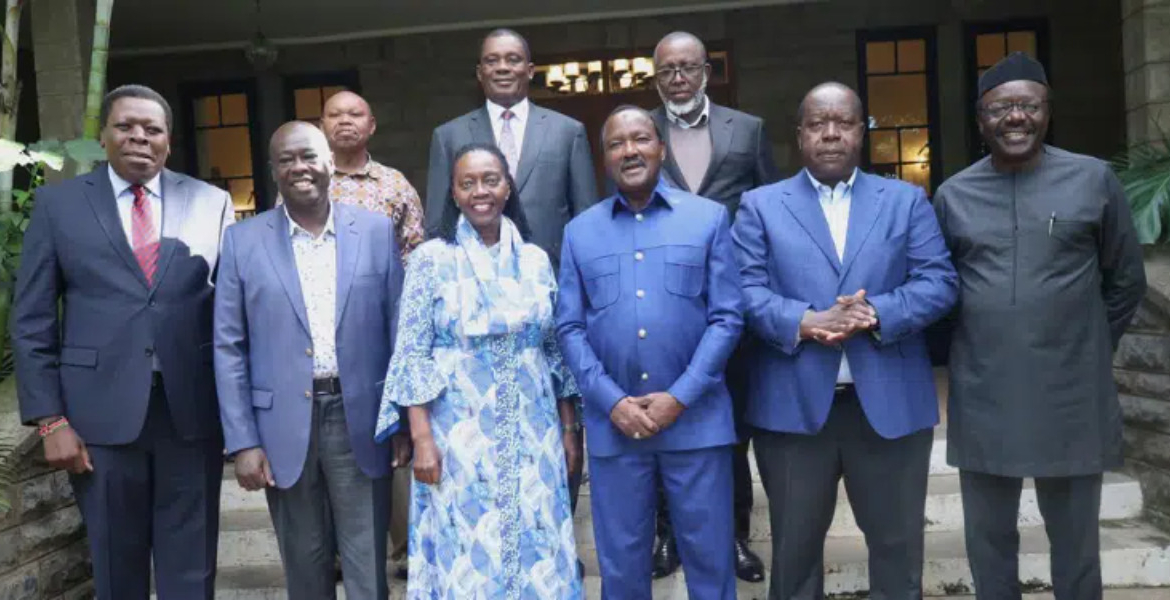
Some big problem here is whether the other possible candidates like Kolonzo Muysoka, Matiang’i and others will let Gachagua go to the IEBC and be barred the last minute before one of them takes over from him. It is possible that the other candidates may choose to run anyway knowing that Gachagua will be barred.
It is for this reasons that the government supporters will be begging William Ruto, if he wants to win in 2027, never to arrest Rigathi Gachagua even if there is evidence that he is financing some of the goons who have tried to destroy the country.
They will tell Ruto to leave Gachagua there because he is killing the opposition for him now but he is going to bury them all in a big grave outside State House when the nomination for their presidential candidate takes centre stage in the United Opposition group.
What more can Ruto ask from Gachagua who is a gift to him that keeps giving. Take it all Ruto supporters will tell him.
In a shocking development today July 14, 2025 Gachagua took his toxic tribalism to a new level talking to Kenyans in the US. This was Gachagua reaching to the bottom of his tribalism claiming that Kikuyus in Rift Valley did not vote for William Ruto in 2022.
According media reports former deputy president Rigathi Gachagua recounted his experience during his campaign in President William Ruto’s strongholds He cited regions in the Rift Valley that reportedly did not vote for the president in the past general election.
Gachagua revealed the chilling silence he encountered while campaigning for President William Ruto in parts of the Rift Valley in 2022, an experience he now sees as a subtle yet powerful message from the electorate.
Former deputy president Rigathi Gachagua asserted that President William Ruto in Elgeyo Marakwet county had no votes despite making multiple visits to areas such as Njoro, Molo, Burnt Forest, and Kitale. Gachagua claimed that his efforts to rally support for Ruto were met with an unsettling quiet.
“When I went to campaign for Ruto in Njoro, people just looked at me. I spoke to them—they didn’t clap, boo, or say anything, and I kept wondering. The Mt Kenya people in Molo, Njoro, Uasin Gishu and Trans Nzoia did not vote for William Ruto,” he recalled.
The Democracy for Citizens Party leader described how the pattern repeated in every town he visited, despite passionately urging residents to back Ruto. He claimed that in one instance, a resident questioned his understanding of Ruto:
“One person asked me, ‘Do you really know this man?’ I said yes. He asked, ‘Have you ever lived with him?’ I said no. Then he just said, ‘Okay.’”
Ultimately, when the votes were cast, Gachagua claimed that the residents in those regions overwhelmingly rejected Ruto. “I went to Njoro nine times. What they knew then is what I know now,” he concluded, reflecting on the electorate’s quiet but firm disapproval—something he came to understand only in hindsight.
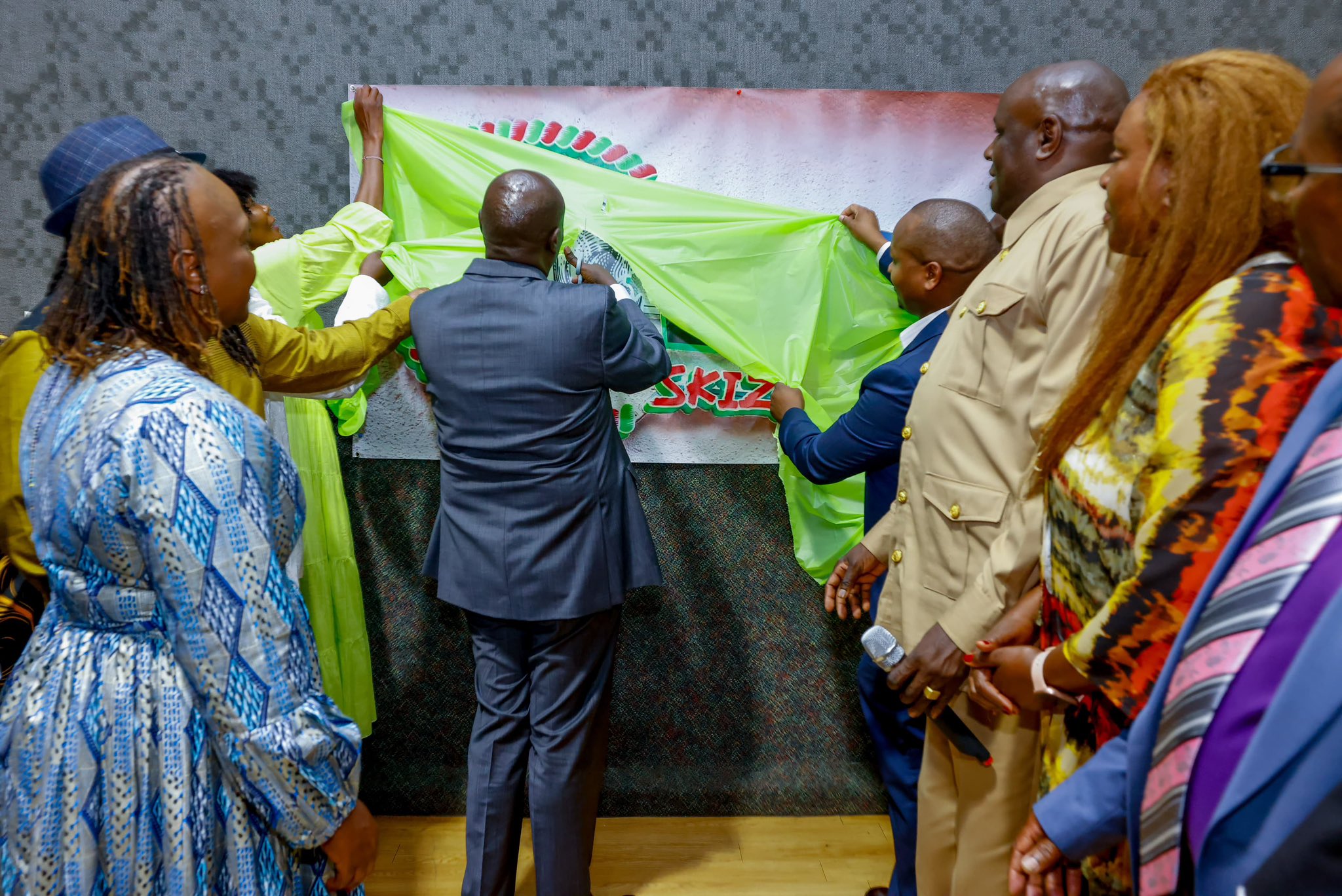
Rigathi Gachagua going to the US trying to bring some kind of confrontation between Kikuyus and Kalenjin communities in Rift Valley is very dangerous because Kenyans know what happened in the 2007/8 massacres in that part of the country and elsewhere when President Kibaki was killing people after the 2007 General Elections. A complete warfare emerged between the Kalenjin community and the Kikuyu population living in Rift valley.
Hundreds of thousands of people were displaced from Rift Valley and many had to escape almost on foot hoping to reach Nairobi and they became settlers all over the country. That some politician called Rigathi Gachagua would want to revive that kind of tribal rivalry which almost destroyed our country is just unthinkable.
Yes, the whole country knows Gachagua thinks the owns the Kikuyu communities anywhere they live even in the US but for the love of God don’t reinvent tribal hatred just so that you may win an election. The consequences of such reckless tribalism can be devastating to the whole country.
No politician in the forthcoming election has tried to provoke tribal hatred and enmity except Rigathi Gachagua and he has to stop that warmongering right now for the sake of our country.
More than 1,500 people were killed all over the country in the post-election violence that arose between communities. Talking about Kikuyus in Rift Gachagua should remember what happened to the Kikuyu community in Molo after the 1992 first multi-party elections.
Rigathi Gachagua was President Moi’s DO in Molo in 1992 when he supervised the killing of more than 5,000 Kikuyus and expelling 75,000 others because they did not vote for Moi in the first multi party election in Kenya held on December 29, 1992.
Moi and Gachagua did their job in three days from the election day and wiped out all Kikuyus from Molo dead or alive. They had to clean the place up quick and fast. They achieved their goal.

President Moi with then Molo DO Rigathi Gachagua after killing many Kikuyus in Molo.

After the annihilation in Molo in 1992, the then young D.O 1 Mr. Gachagua was very quickly promoted by president Moi for a job well done. President Moi in his letter of promotion specifically thanked him for “decimation of Kikuyu separatists”. We all know what that means.
The ethnic cleansing and murder in Molo in 1992 is the worst in our history as a country. It has its heroes who want to take power again on August 10, 2027. But we have the evidence of their crimes. Kenyans are going to stop them at the ballot.

On the ground today we have a situation in Kirinyaga that Gachagua has to deal with in his own backyard.
Saba Saba protests: Kirinyaga business owners give looters 14 days to return stolen goods
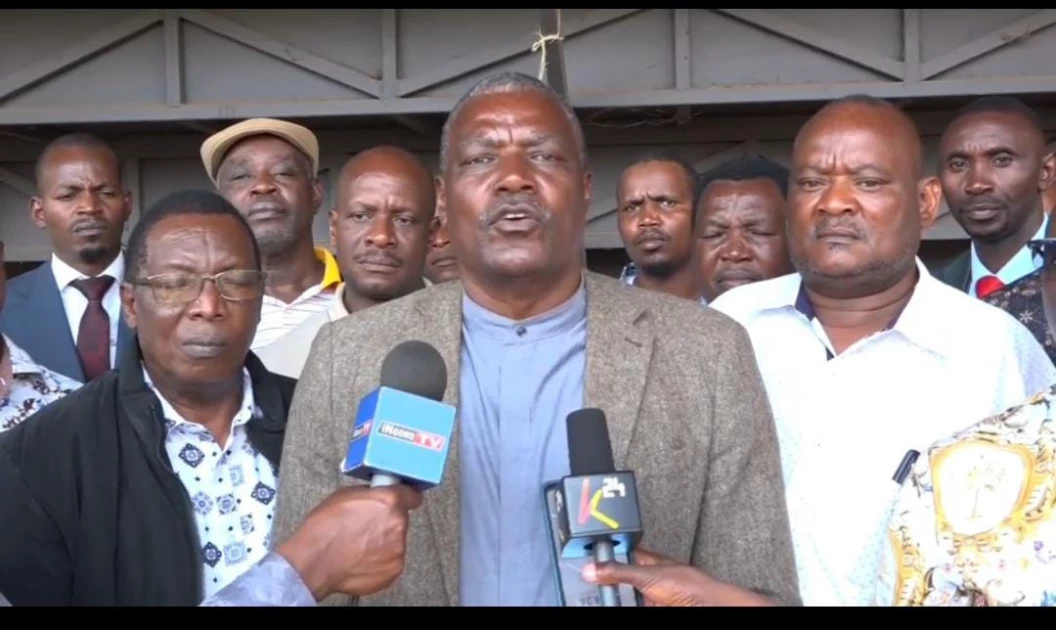
Kirinyaga business owners, led by their chairman Anthony Mucheke hold a press briefing.
The management of two supermarkets in Kagumo and Kagio towns, Kirinyaga County, has issued an ultimatum to residents who looted properties during the Saba Saba protests to return the stolen items within 14 days.
This followed a meeting convened on Thursday, July 10, between over 2,000 business people led by their chairman, Anthony Mucheke, who met at Wanguru International Stadium and agreed on how to protect their business in the future.
They placed posters across the county, warning all the looters to return the stolen items and before the close of business on Thursday, the residents brought back some of the stolen items.
“Several items have been dropped near the supermarkets, others dropped in police stations and along the roads,” one of the drivers ferrying the items said in Kagio town.
According to the chairman, the business people counted losses worth over Ksh.200 million.
“We were caught off guard, but right now we have organized ourselves. We discovered that those were not protesters but criminals,” Mucheke said.
According to Charles Njiru, a businessman in Kirinyaga, his property worth over Ksh.50 million was stolen after looters broke into his supermarket in the town.
“I couldn’t believe to see the local people taking advantage of the situation, even some of my former employees who left their jobs on my premises,” Njiru added.
